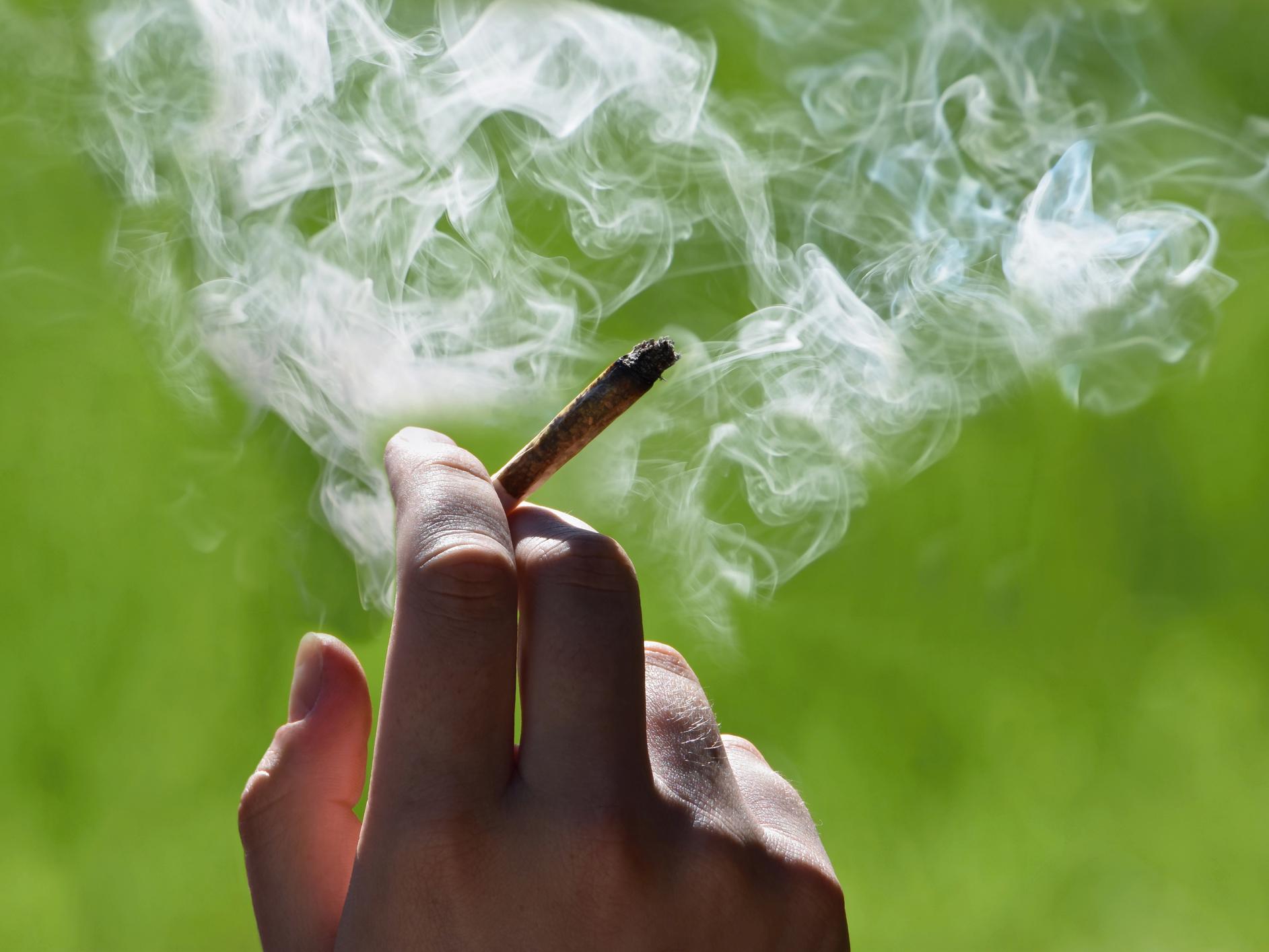Super-strength cannabis blamed for sending rates of psychosis in London to highest level in major European study
‘In Brexit Britain we are leading in one area still – and that is the frequency of psychosis’

Your support helps us to tell the story
From reproductive rights to climate change to Big Tech, The Independent is on the ground when the story is developing. Whether it's investigating the financials of Elon Musk's pro-Trump PAC or producing our latest documentary, 'The A Word', which shines a light on the American women fighting for reproductive rights, we know how important it is to parse out the facts from the messaging.
At such a critical moment in US history, we need reporters on the ground. Your donation allows us to keep sending journalists to speak to both sides of the story.
The Independent is trusted by Americans across the entire political spectrum. And unlike many other quality news outlets, we choose not to lock Americans out of our reporting and analysis with paywalls. We believe quality journalism should be available to everyone, paid for by those who can afford it.
Your support makes all the difference.Super-strength cannabis flooding the streets of London is helping drive psychosis rates there to the highest levels recorded in Europe.
A major new study has found that smoking powerful strains like skunk every day made people five times more likely to develop mental health problems.
Nearly a third of cases recorded in south east London hospitals were linked to people smoking these powerful drugs, which now make up 94 per cent of the cannabis sold in the city.
Doctors warned that with hospitals already lacking resources for mental health provision, cannabis smoking was placing an enormous burden on the city’s strained psychiatric units.
Though many factors can contribute to the onset of conditions like schizophrenia, the researchers found cannabis use explained a lot of variation in mental health problems seen across Europe.
“In Brexit Britain we are leading in one area still – and that is the frequency of psychosis,” said Professor Sir Robin Murray, a psychiatrist at King’s College London.
“That is party explained by the high incidence of migrants, and partly explained by cannabis use.”
The research was carried out at 11 sites across five European countries, including south east London and Cambridge, as well as one in Brazil.
As the first study of its kind to look at whole populations, it came in response to the legalisation of cannabis in many nations, and a need to understand its mental health impacts.
While the highest psychosis rates overall were recorded in London, it was beaten to the record of cannabis-induced psychosis rates by Amsterdam – where sale of high strength strains is legal.
Overall the scientists concluded that smoking cannabis daily tripled the chances of developing psychosis.
But stronger strains, which contain levels of the active ingredient THC above 10 per cent, increased the chances even more.
If these varieties were no longer available, the scientists estimated the rates of psychosis would drop from 46 to 32 per 100,000 people every year.
While these numbers are closer to dozens than hundreds of patients for individual areas, the doctors said this would be enough to have a big real-world impact.
“If you are a psychiatrist like me that actually works in this catchment area and sees first episode psychosis patients, this is actually quite a significant impact,” said Dr Marta Di Forti, another King’s College scientist who worked on the study.
Sir Robin added: “We try to help people in very inadequate psychiatric services in London – and one of the reasons the services are so bad … is that we have 30 per cent more patients than we are funded for or expect to have.
“If we could abolish the consumption of skunk we would have 30 per cent less patients and we might make a better job of looking after the patients we have.”
To achieve this, some campaigners say authorities should allow the sale of weaker strains under licence, blaming the prevalence of high potency cannabis on unregulated markets.
“We call for governments to regulate the cannabis market, from production to supply, to ensure safer products are available,” said James Nicholls, CEO of the Transform Drug Policy Foundation.
It was noted that while the sale of cannabis in the Netherlands is now legal, cannabis production remains unregulated.
The new findings, published in the journal The Lancet Psychiatry, were released on the same day chief medical officer Professor Dame Sally Davies gave evidence to MPs about the UK’s policies on medical cannabis.
However, the researchers were doubtful about legalisation being a silver bullet, noting that even cannabis sold as medicine could have side effects, and if the drug is legalised at all there must also be education about its harmful effects.
The team called for more research covering the rest of the UK, as there is little data available on the strength of cannabis outside the capital.
A Home Office spokesman said: “The government’s approach remains clear: we must prevent illicit drug use in our communities and help those dependent on drugs to recover.
“No illegal drug can be assumed to be safe and there is no safe way to take them. Drugs can devastate lives, ruin families and damage communities.
“The possession of any amount of a controlled drug is a criminal offence and the supply of a controlled drug is an even more serious offence.”
Join our commenting forum
Join thought-provoking conversations, follow other Independent readers and see their replies
Comments